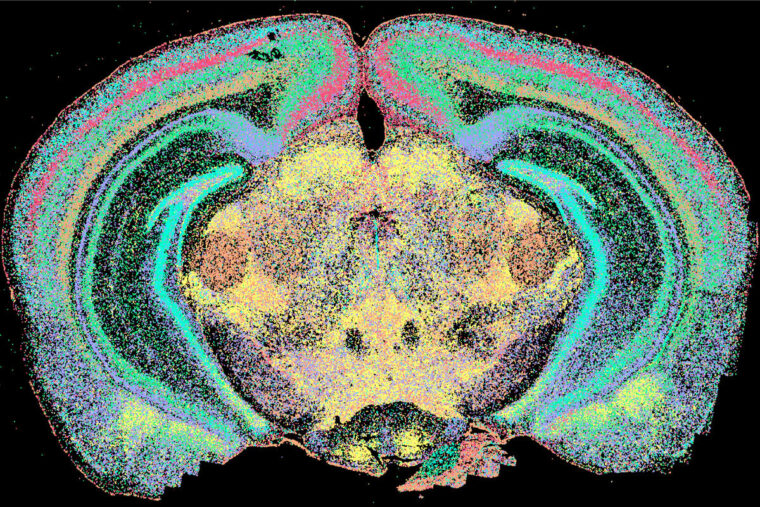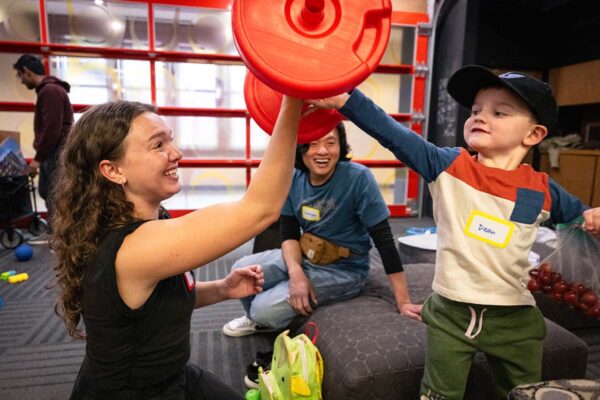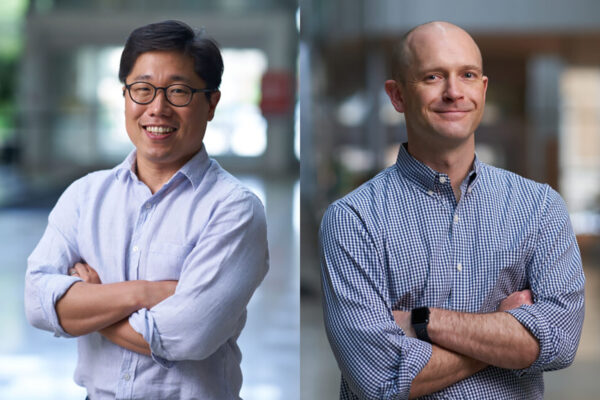Researchers at Washington University School of Medicine in St. Louis have received an $11.85 million grant to create a resource for the WashU and national research communities to study the growing number of neurodevelopmental and psychiatric disorders known to be caused by a single gene mutation.
Funded by the National Institute of Mental Health of the National Institutes of Health (NIH), the grant supports the Washington University Scalable Mouse Assay Center (WU-SMAC), which curates and analyzes mouse models of these conditions. Starting with certain mutations known to cause profound autism, the resource will help researchers understand these complex diagnoses and set the stage for possible future interventions.
The center is one of several assay and data-generation centers that make up a large national consortium called the Scalable and Systematic Neurobiology of Psychiatric and Neurodevelopmental Disorder Risk Genes (SSPsyGene) Consortium, which will host the rich variety of behavioral, anatomical and transcriptomic data generated by WU-SMAC over the next five years. The consortium aims to create a comprehensive catalog of the gene mutations — and their effects in cells and animal models — that are associated with neurodevelopmental disorders or with psychiatric disorders such as schizophrenia.
“Over the last decade, there has been remarkable success in discovering new forms of autism caused by single gene mutations in humans,” said principal investigator Joseph Dougherty, a professor of genetics and of psychiatry at WashU Medicine. “Ten years ago, scientists had identified maybe three single-gene mutations that each cause autism. Today, that number is over 300, demonstrating that there are many genetic routes to this diagnosis. We’re just beginning to understand the details of how these gene mutations change brain development, and we’re hopeful this new center will serve as an important resource for scientists studying the genetics of autism and other neurodevelopmental conditions.”
For these key genes, mice and humans often share greater than 95% of their DNA. As such, breeding mice with the same specific gene mutations that cause profound autism in humans allows scientists to study how these mutations affect brain development, learning and behavior. In fact, each mouse model is often inspired by a specific patient, according to Dougherty. These mice can be compared to their littermates who don’t have the mutation but live in the same environment, making for well-controlled experiments.
In the future, researchers could be able to test potential interventions in the mice modeling the human gene mutations.
Dougherty said the new center is also launching a pilot program for WashU investigators who are interested in harnessing these mouse models for their own research.
“We would love to build new collaborations with researchers across the university,” Dougherty said. “For example, we are focused on brain development, but many of these gene mutations also influence heart development and cancer development. We welcome interest from colleagues who might be interested in studying these gene mutations and their impacts on different tissues throughout the body.”
The new center is a collaboration between the Intellectual and Developmental Disabilities Research Center and the McDonnell Genome Institute, both at WashU Medicine. As such, Dougherty leads the center with co-principal investigators Harrison Gabel, an associate professor of neuroscience; Alexxai Kravitz, an associate professor of psychiatry; and Robi Mitra, the Alvin Goldfarb Distinguished Professor of Computational Biology in the Department of Genetics; along with co-investigators Susan Maloney, an associate professor of psychiatry; Hysell Oviedo, an assistant professor of neuroscience; and Robert Fulton, an assistant professor of genetics and the director of technology development at the McDonnell Genome Institute.
About Washington University School of Medicine
WashU Medicine is a global leader in academic medicine, including biomedical research, patient care and educational programs with 2,900 faculty. Its National Institutes of Health (NIH) research funding portfolio is the second largest among U.S. medical schools and has grown 83% since 2016. Together with institutional investment, WashU Medicine commits well over $1 billion annually to basic and clinical research innovation and training. Its faculty practice is consistently within the top five in the country, with more than 1,900 faculty physicians practicing at 130 locations and who are also the medical staffs of Barnes-Jewish and St. Louis Children’s hospitals of BJC HealthCare. WashU Medicine has a storied history in MD/PhD training, recently dedicated $100 million to scholarships and curriculum renewal for its medical students, and is home to top-notch training programs in every medical subspecialty as well as physical therapy, occupational therapy, and audiology and communications sciences.
Originally published on the WashU Medicine website



